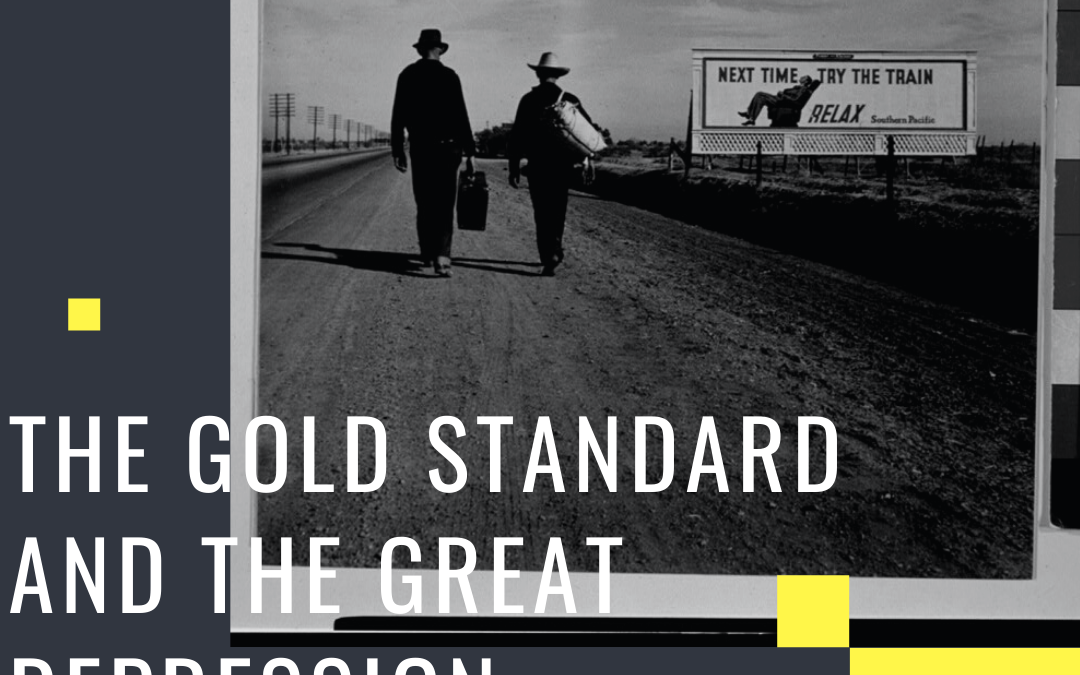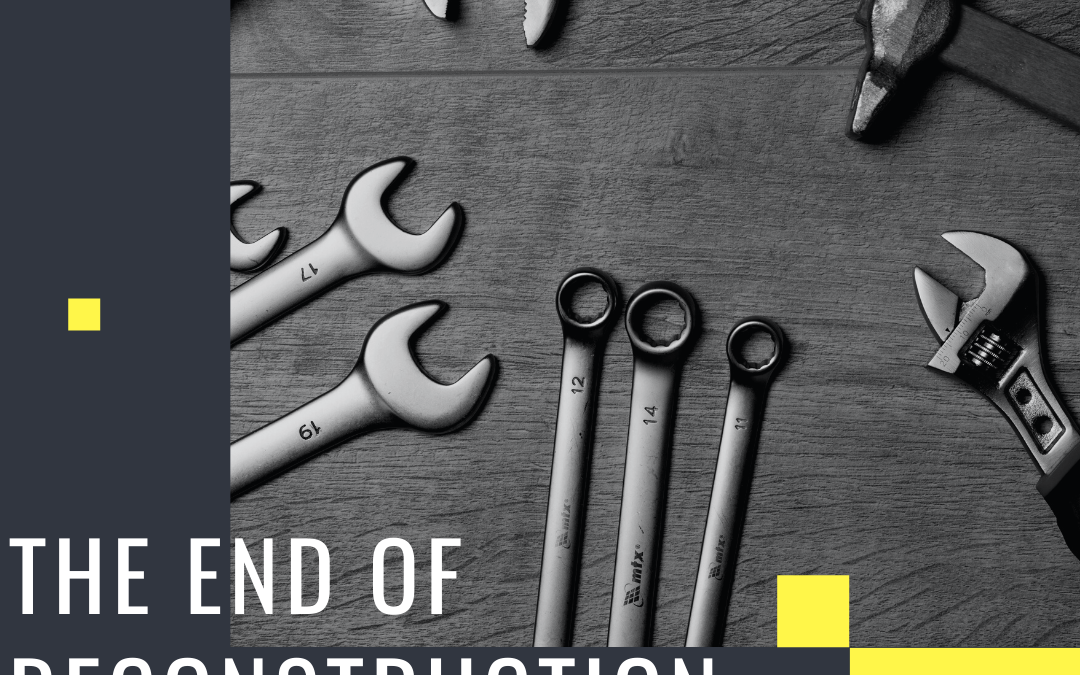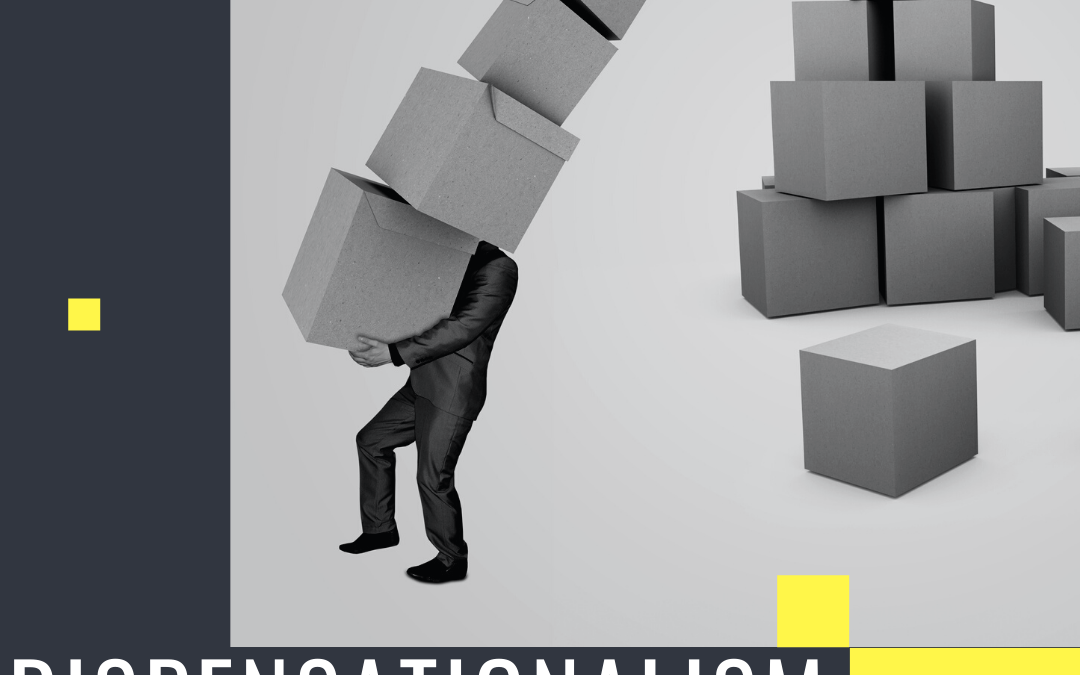
by Chris Staron | May 3, 2022 | Uncategorized
How the gold standard made the Great Depression much worse
The Great Depression. Some say that it was caused by a failure of the stock market. Well… that’s not all. Jacob Goldstein, host of NPR’s Planet Money podcast and author of “Money: the Truce Story of a Made-Up Thing” joins us to discuss the role the gold standard played in making the depression what it was.
A run on the bank
Here is why the gold standard made the Great Depression much worse. Simply put, the panic of 1929 caused people to run to the bank and demand their money back in the form of gold. We were on the gold standard back then and you could literally go to a bank and ask for them to get your money in gold. But banks were running out! There was only so much gold on hand because banks don’t generally keep 100% of their money in the vault. And banks (for the ease of our understanding things) “create” money when they do loans. So it was possible for a bank only to have a certain percentage of their loans backed by actual gold.
The Federal Reserve Raised Interest Rates
This created real trouble. If the banks ran out of gold, they’d go broke and have to close. So the Federal Reserve decided to raise interest rates. Raising interest rates gives people an incentive to leave their money in banks because then they get more interest. BUT it also made it harder for people to borrow money or refinance their existing loans. Which put a huge crimp on the American financial system. In order to keep gold in the banks, the Fed had to hobble the loan industry. That meant that businesses couldn’t get loans to help with payroll, and people looking to start a business couldn’t get the money they needed. And the economy froze.
That is why the gold standard was bad for the economy. Preserving it meant sacrificing the loan industry.
Helpful Sources:

by Chris Staron | Mar 15, 2022 | Episodes
The end of Reconstruction
The 1800s were a time of milking cows and going to the county fair.
Sure… but what else? We tend to think of this century as a quiet, pastoral era when people were friendly and life was simple. But the 1800s were a crazy time! The American Civil War, the Napoleonic Wars, the Spanish-American War, conquest, the suffrage movement, the prohibition movement, massive technological changes. It’s a wonder we ever made it out alive.
In this episode, we explore the early life of William Jennings Bryan and the Democratic Party, the party of Jim Crow that he would soon lead. After the Civil War, it was the Democrats who created Black Codes in the South to restrict the upward mobility of African Americans. They were the party of white farmers and soon transitioned into representing labor unions and, eventually, many black people in the United States. Bryan was one of the men responsible for that transition.
Helpful Links and Sources:
- “A Godly Hero” by Michael Kazin
- Truce episode about the Woman’s Christian Temperance Union (WCTU)
- Meeting notes of the 1873 Evangelical Alliance
- “Fundamentalism and American Culture” by George Marsden
- “A Righteous Cause” by Robert W. Cherny (book on William Jennings Bryan)
- Interesting bio on Stephen Douglas
- President Hays’ acceptance speech
Discussion Questions:
- What do you think of when you think of the 1800s?
- Was the 1800s a simpler time?
- What mistakes did the Republican Party make in ending Reconstruction?
- How should abolitionists have handled the South after the Civil War?
- Can a Christian lead a racist political party? Should they?
- What were some technological advances that came about in the 1800s? How might they have shifted the way people lived and thought back then?
- Are there technological changes going on now that could shift the way we think and interact with each other?
- Chris ends the episode by talking about how Christians should be a people of the means, not necessarily the ends. Do you think the ends ever justify the means for Christians?

by Chris Staron | Mar 1, 2022 | Episodes
Become a patron of the show and help make the Truce episodes you love.
What is dispensationalism?
This season we’re tracing the history of Christian fundamentalism through the life of William Jennings Bryan. But first, we need to learn some important definitions. Our big word of the week is dispensationalism. It’s not as complicated as it sounds. Dispensationalism is (in part) the notion that God treats humankind differently depending on what era we are in. It is not accepted by all Christians, but it is a building block of fundamentalism. Another component of dispensationalism is the secret rapture–the idea that God will take His elect to heaven just before the tribulation. It also asserts that the Christian Church will become apostate before the end times. This last tidbit is important! Premillennialism made Christians suspicious of the outside world, but it was dispensationalism that made us suspicious of each other.
Who created dispensationalism?
John Nelson Darby is often credited as the father of dispensationalism. He came up with the idea of the rapture and is the man who packaged a bunch of existing ideas into this systematized vision of the Bible. In the 1700s and 1800s, people adapted the scientific notion of categorizing everything into genus and species and applied it to all areas of study, even when reading the Bible. This encouraged people like Darby to break the Bible into “dispensations” or eras.
Our guest this week is George Marsden. He’s the author of “Fundamentalism and American Culture”.
Discussion Questions:
- Are you suspicious of other Christians? Why is that?
- Do you believe in the rapture? Why?
- Does the God of the Bible behave differently in different parts of the Bible? Or is He the same throughout?
- Do you believe that Jewish people were destined to return to Israel based on Matthew 24:32-33 or Romans 11:25-26?
- What did you know about the French Revolution before our recent episodes on it? Do you think it was a significant event in world history? If so, why?
Helpful Links:



